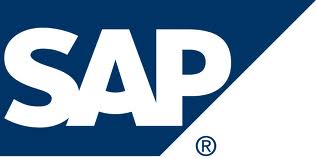|
Earn up to ₹40 per post as scholarship. Unlimited earning potential per month. |
 System Analysis and Programme Development (SAP) is a very popular software system product from Germany falling in the category of ERP, which is in very high demand these days. Candidates having thorough knowledge in ERP have great demand in the job market and they attract handsome salaries.
System Analysis and Programme Development (SAP) is a very popular software system product from Germany falling in the category of ERP, which is in very high demand these days. Candidates having thorough knowledge in ERP have great demand in the job market and they attract handsome salaries.
What is ERP – SAP?
ERP, a short for Enterprise Resource Planning, is company-wide computer software system used to manage and co-ordinate all the resources, information and functions of an enterprise (business / industry) from a monolithic (single & shared) data storage. It uses concept of modules, that is individual programs / applications that can be purchased (licensed) and run separately. However, all the modules extract data from common database, which makes it easy for different departments of an enterprise to work in coordinated manner and without entry of same data repeatedly. Thus, ERP has a very high level of integration among its individual applications which guarantee consistency of data throughout the system and enterprise itself.
SAP is one such ERP. There are other ERP systems also available and used in the market. The other one which has approximately equal share in the market is, Oracle Application Suite or Oracle Apps for short. Though the basic concepts are same but configuration, programming and implementation details differ and they use different programming languages.
The most important aspect of an ERP system is customization, that is to make it suitable for an enterprise, which involves mapping the functionalities of an ERP system with that of the enterprises. The ERPs are built according to the standard business practices and leave an area for customization, which are to be identified by Business Analysts and there may be two possible outcomes of this analysis – Either the enterprise would require to change to the standard business practice of some of its activities, which is called BPR (Business Process Reengineering), secondly wherever it is not possible to change owing to certain statutes or legal restrictions or some limitations of the company, new programs will have to written or existing ones are modified.
Career Options & Eligibility for career in SAP
A SAP consultant may work in one of or combination of three areas – Functional, Technical and Basis Admin. The fourth category may of course be the end users, who are the employees of the enterprise where the SAP has been implemented, also required to be trained to use the interface.
Functional Consultants may be the people from business administration, finance, human resource management or business management background who wear hat of the business analyst. They study the business set up of the enterprise and identify the differences between standard implementation in SAP vis-a-vis the enterprise and configure the SAP according to the requirements of the enterprise. They also identify the areas where the customized programs will have to be written or existing programs changed to implement certain functionalities in the process of customization. They provide the inputs in this regard to the Technical Consultants.
Technical Consultants are the programmer analysts and they have to be very strong in programming languages like ABAP4, Java, SQL & PL/SQL. They have to understand the integration of the modules at the system levels to be able to analyse the propagation of changes, they make in the modules, throughout the system. They come from the programming and developer background, but SAP being a very complex system, they also wear the hat of an analyst.
There are sometimes people who work as combination of Functional and Technical Consultant, are called as Techno-Functional Consultants. Particularly there is a huge demand for such people and they are highly paid. An Engineering plus Business Administration background may be suitable for this job.
Basis Admin are responsible for administration of the system – there are different aspects like privilege administration, security administration and data administration being the prime. They mostly come from DBA background and programming. Thorough knowledge in the areas of Database Administration, OS level configurations, networking, system integration are some of the attributes desirable for this job.
Scope for a SAP trained professional
ERP systems cover all core functions of an enterprise, regardless of the organization’s business or charter. These systems can now be found in non-manufacturing businesses, non-profit organizations and government sector. Businesses have a wide scope of applications and processes throughout their functional units producing ERP systems that are typically complex and usually impose significant changes on staff work practices.
The main purpose of using standard business application software like SAP is to reduce the amount of time and money spent on developing and testing all the programs. Therefore, most companies will try to utilize the available tools provided by SAP. The trained consultants have direct access to the vast resources of the SAP Information Network, so their clients can rely on them to have the latest, most up-to-date knowledge and skills. Taking all this into account, SAP certification course plays a very vital role in today’s market.
With the Internet, the user becomes the focus of software applications. SAP develops SAP Workplace and paves the way for the idea of an enterprise portal and role-specific access to information. Currently, more than 12 million users work each day with SAP solutions. There are now 140,000 installations worldwide, More than 2,400 certified partners, over 26 industry-specific business solutions and more than 75,000 customers in 120 countries. SAP is the world’s third-largest independent software vendor.